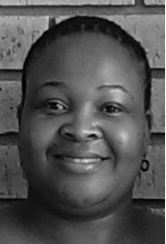The founder and managing director of LT Clinical Research, one of the first wholly black-owned South African CRO, reveals how South Africa is a very conducive environment for CROs, with a diverse patient population, a well-established regulatory framework and a currency that compares well to other African currencies; why the transformation of South African society is particular important to her; and how the mission is to be the number one South African CRO as well as one of the leading CROs serving the African continent.
What particular niche did you see in the South African CRO industry when founding the company in 2008?
When we founded Logic Trials in 2008, we saw a need for a South African-based CRO, in particular given that the market is largely dominated by international CROs. The country is moving towards Broad-Based Black Economic Empowerment (BB-BEE). When we started the company, there were no BB-BEE-led CROs, and were amongst the first to have changed that. Our goal was to establish the first black-owned CRO. When we started out we had a partnership with a British multinational; two weeks ago we disinvested from this partnership and are now a wholly South African owned CRO. We now call ourselves LT Clinical Research. Our main focus is on infectious diseases and non-communicable diseases, We are building specialist capacity in oncology.
Jerome Singh, of the Centre for the AIDS Programme of Research in South Africa (CAPRISA), has said that South Africa is unique for clinical trials, with a genetically diverse population and a high burden of traditional and lifestyle diseases. Do you agree with this assessment?
I do see South Africa as being unique in clinical trials. Our uniqueness comes also from the government’s drive to ensure that we widen the availability of clinical trials across the country. Currently trials are concentrated in the well-established cities. The Medicine Control Council (MCC) is now looking to build capacity for clinical trials. As a country, this is a new and exciting initiative.
What particular advantages does South Africa have as a clinical research environment compared to other emerging countries?
South Africa has a very conducive environment for clinical research. The diversity in our patient population makes it a clinical research friendly country. There have been some criticisms of our regulatory framework, with a suggestion that it is bringing down the clinical trials industry. To address this perception, the Minister of Health in South Africa recently appointed a revamped clinical trials committee and the current MCC will soon be transforming into a new agency called South African Health Product Regulatory Agency (SAHPRA). The industry welcomes such a move as it is aimed at enhancing the competitiveness of our sector in terms of it being a clinical trials destination of choice for global studies.
Over the last 10 years, many top global CROs have set up fully-fledged operations in South Africa to serve the continent. What is it that makes South Africa an attractive gateway for clinical trials in the African continent?
It is relatively easy for global companies to come and do business in South Africa. After all, South Africa has an established clinical research infrastructure. We have excellent investigators, well-resourced clinical trial sites, access to a wider patient population, and relatively cheap input costs. However, it would not be entirely correct to suggest that South Africa is a gateway. I think each country on our continent has unique propositions and offerings. But, it is a fact that top global CROs continue to choose South Africa as their country of residence for Africa studies. LT Clinical Research is poised to becoming a regional CRO with full-time presence across Southern, East and West Africa.
There are a lot of strong, global CROs in South Africa with over 10 years of experience – what sets LT Clinical Research apart from the rest?
Most of our work comes from clients looking for a regional CRO, rather than a large international CRO, although 90 percent of our business comes from outside South Africa and only 10 percent from within the region.. We provide a personalized service; each client is treated individually. Given that we are small when compared to the larger CROs, this also allows us to be more flexible in the manner in which we conduct our business. We are flexible in adjusting to our client’s requirements and any changes that might come in the middle of a trial.
Transforming South African society, as part of BB-BEE, is a priority for the government. As the wholly black-owned CRO in the country, what importance do you personally attach to transforming South African society?
It is extremely important for us to reflect the demographic profile of the markets we serve. Equally important is the notion that sector benefits should also accrue to locals. I am not entirely satisfied that most of the global CROs operating in South Africa seem to be exempted from meeting the transformative objectives in terms of ownership and local procurement imperatives. I think this has to change. All sectors that derive income from South Africa should be subjected to the transformative agenda.
How will you maximise the potential of LT Clinical Research over the next three to five years?
Our mission is to be the preferred CRO for clinical studies in Africa. as well as one of the leading CROs serving the African continent.. We also want to see ourselves contributing positively to building capacity across Africa.
As a trendsetter within the industry, what has been your main driving force?
No task or boundary is finite. I try to infuse in my team a culture of going beyond the limits in the way we deliver products and services and the manner in which we treat each other. I believe such a quest sets us apart and endears us to those we serve.







